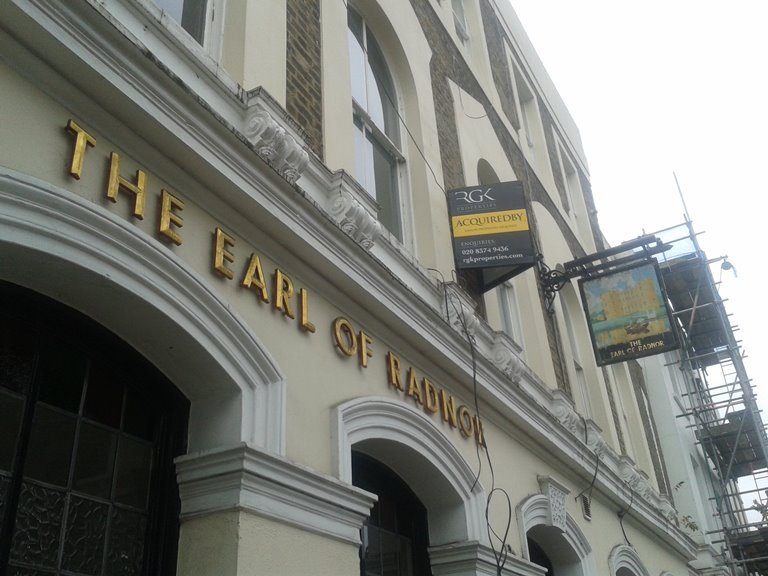The planning system is a framework governing which developments can happen in an area, according to agreed policies. Applying for planning permission, also known as planning consent, is a formalised process within this system.
Planning basics
Planning consent is required for all changes of use of pubs as well as for demolition. Planning decisions about pubs are the responsibility of the Local Planning Authority – usually the Borough or District Council. Councils will make a decision on whether a planning application is in line with national and local planning policy. Clear-cut decisions on planning matters are made by council officers; more complex or controversial decisions will be made by a planning committee made up of elected councillors.
Tip: if there are a large number of objections to a planning application, the decision is likely to go to committee. This gives you and your campaign group an opportunity to present your case before the councillors who will make the decision.
Planning applications
When an application is submitted, a Council should:
- publish it and any accompanying plans on its website
- notify, in writing all the immediate neighbours to the property
- display a notice of the application prominently outside the building.
There is a statutory consultation period of at least 21 days from the date of validation of the application, during which the Council will invite comments from members of the public and other stakeholders. This is your opportunity to object to any application about your pub.
Tip: sometimes people don’t refer to the pub by its name but use its postal address when requesting planning permission. That makes it easy to miss the application when reading the Council’s website!
How to object
Objections must be made on the grounds that the application does not accord with planning policy. It is not sufficient that you don’t like the proposal! You have to quote policies and present an argument as to why the application is not in line with stated policy. Policies include:
- national policy (the National Planning Policy Framework, or NPPF).
- local policy, often known as Local Development Frameworks (LDF) or Local Plans
- regional policy, where it exists (eg London Plan, Northern Powerhouse)
- the Council’s Pub Protection Policy (if it has one)
You need to write to the Council setting out your objection clearly. A letter doesn’t necessarily need to be long, but it does need to explain the grounds on which you are objecting. Make sure to quote the planning application reference number.
Objections can be made on the basis of:
- loss of pub as a community social facility (this should be the prime objection)
- design quality
- “scale and massing” (the size of the development)
- impact on residents
- noise
- light pollution
- blocking of light
- highways and traffic concerns
- provision of affordable housing
- harm to heritage assets.
This list is not exhaustive! By reading your Council’s own local plan, you will be able to find out its priorities and quote these within any objection you may make.
Tip: pubs are identified as community facilities at Paragraph 92 of the NPPF and Councils are required to safeguard their use and resist their loss. In your letter, quote National Planning Policy Framework paragraph 92:
To provide the social, recreational and cultural facilities and services the community needs, planning policies and decisions should:
a) plan positively for the provision and use of shared spaces, community facilities (such as local shops, meeting places, sports venues, open space, cultural buildings, public houses and places of worship) and other local services to enhance the sustainability of communities and residential environments;
b) take into account and support the delivery of local strategies to improve health, social and cultural well-being for all sections of the community;
c) guard against the unnecessary loss of valued facilities and services, particularly where this would reduce the community’s ability to meet its day-to-day needs;
d) ensure that established shops, facilities and services are able to develop and modernise, and are retained for the benefit of the community; and
e) ensure an integrated approach to considering the location of housing, economic uses and community facilities and services.
Tip: Petitions hold very little weight, and however many names are on the list can be dismissed as a single objection. Individual objections from people living locally are far more valuable to your campaign to save your pub. (Petitions can, however, be useful as a tool to gather contact details for supporters.)
Addressing a planning committee
Before a planning committee, the officer report about the application will be circulated. At the meeting, the officer will outline the scheme along with his or her recommendations. Objectors then have the opportunity to address the committee. The developer can respond, and finally, Councillors have the opportunity to question officers, the developer and the objectors, before the matter is put to a vote.
Be aware that however many objectors attend the meeting, you are likely only to have a total of five minutes speaking time, so any presentation of your objections will have to be brief!
Tip: Use a maximum of one or two spokespeople to cover all the points.
Important!
Committee members must withdraw from the vote if they have been lobbied in advance. Committee members should also withdraw on developments within their own Ward or other circumstances where they have a vested interest. This means that if you know a Councillor is on the planning sub-committee and is likely to be sympathetic to your campaign, they should NOT be approached for support as they must then abstain from any vote and without their support a vote may be carried against your campaign.
Appeals
An applicant can appeal against a decision. If local people are dissatisfied with a Council planning decision, they have no equivalent right of appeal.
The only course of challenge open to members of the public is via judicial review in the High Court. This is tedious and very costly and happens rarely. A judicial review can only consider whether the process was carried out properly and legally; you cannot bring a judicial review simply because you disagree with the decision that has been made.
When a decision has been made
If permission is granted, the applicant then has three years to commence the development. If the development does not begin within three years, permission lapses.
If a Council refuses planning consent, the developer can revise the scheme to try to address some of the concerns raised in the reasons for refusal or consider lodging an appeal. In an appeal, an independent Planning Inspector appointed by the Secretary of State will review the application and has the power to overturn (or uphold) the Council’s decision. Councils should not consider the threat of an appeal, including use of the argument “we had to approve it, or it would have gone to appeal”, in reaching their initial decision.

